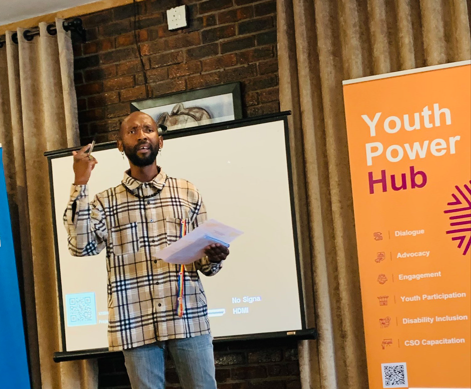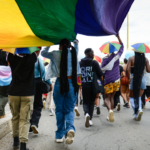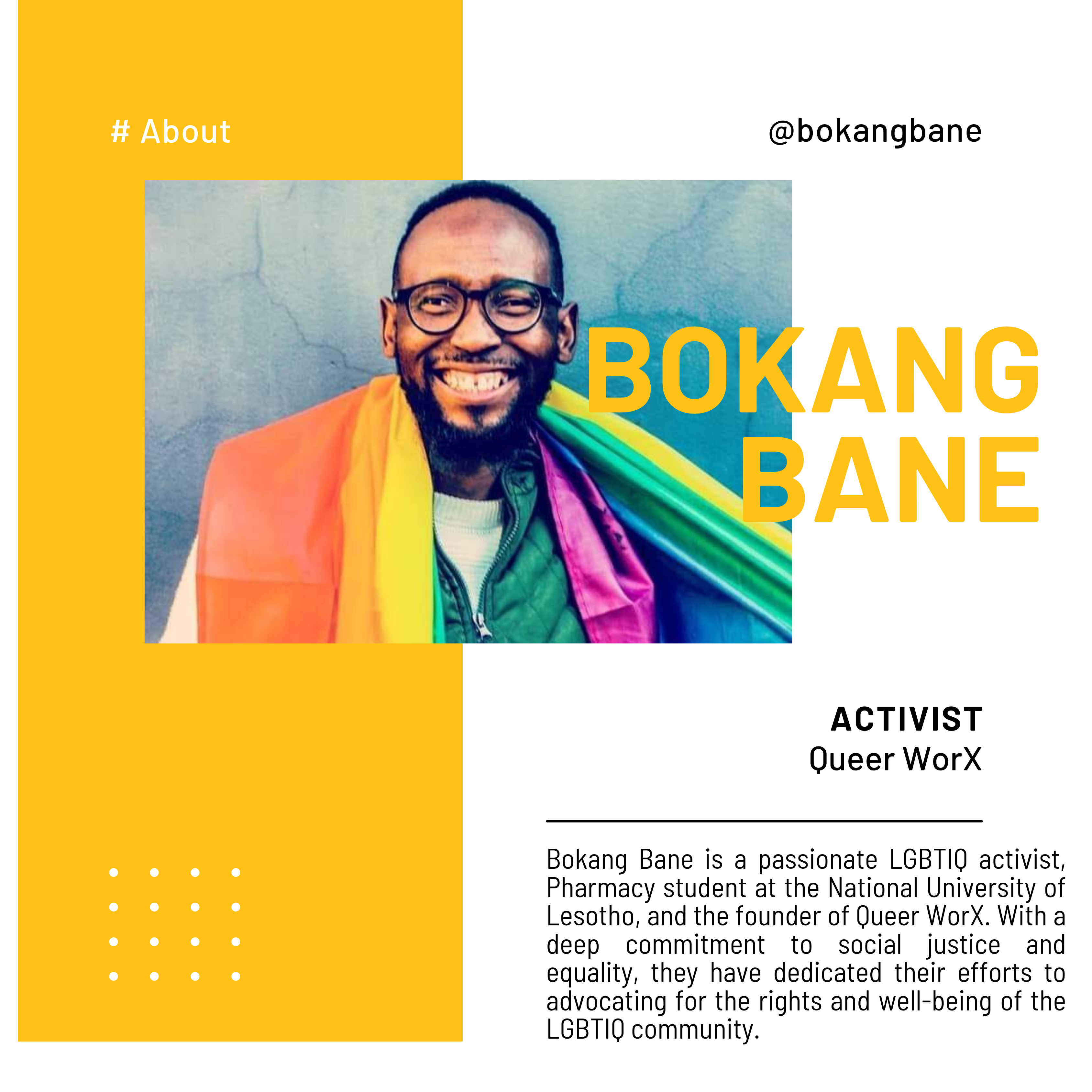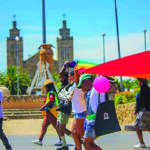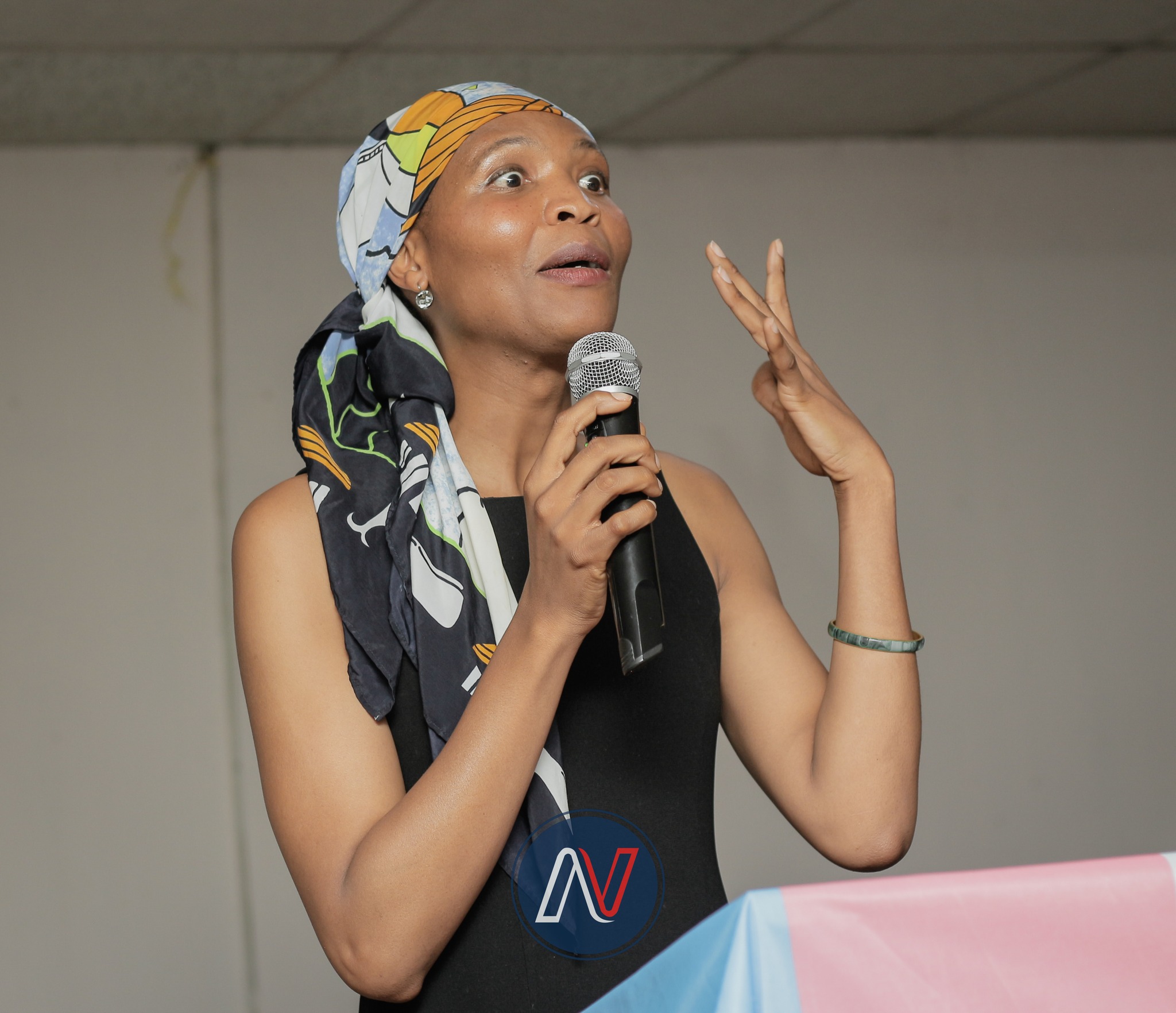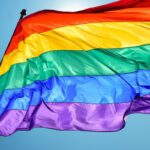Lesotho has never lacked debates about identity, morality, or tradition, but when it comes to LGBTIQ+ people, the national conversation has moved at the pace of a stubborn mountain wind: slow, cold, and reluctant to change direction. Yet beneath that wind, in the quiet corners where resilience is learned before it is lived, a different story has been taking shape, one that refuses to reduce queer lives to silence, survival, or statistics.
At the centre of this story stands Bokang Bane, the founding force behind Queer WorX. Bane is part of a generation of leaders who are tired of asking permission to exist. Instead, they are rewriting the country’s script by asking sharper, braver questions: How do queer Basotho earn, build, create, and contribute? What would Lesotho look like if economic justice included everyone, truly everyone?
Queer WorX is not simply advocating for rights; it is crafting an entirely new imagination for queer life in Lesotho. Through ventures like Queer Econ, learning exchanges, and the upcoming Phutheho gathering, the organisation is planting seeds of possibility in a landscape where opportunity has too often been rationed according to who you love, how you look, or where you fit in the public imagination.
At a time when the country is wrestling with hunger, unemployment, and a restless youth searching for meaning, Bane argues that Lesotho cannot afford to waste the creativity, labour, and brilliance of its queer citizens. Their vision is both unapologetic and practical: a Lesotho where queerness is not a risk, but a resource, not a reason for exclusion, but a catalyst for contribution.
In the conversation that follows, Bane speaks with the kind of clarity that cuts through noise. They reflect on the challenges, the dreams, and the quiet yet radical work of building economic dignity for a community that has always been part of the nation’s story, even when unacknowledged.
This Q&A offers a glimpse into that work, and an invitation to imagine a country big enough for all its people.
Kananelo Boloetse (KB): What motivated the establishment of Queer WorX, and what gap did you see that other organisations weren’t addressing?
Bokang Bane: Following COVID-19, activism shifted globally, regionally, and locally. For many of us, that period forced a deep reflection on how to expand our work and engage in conversations that had long remained on the margins. While progress has been made in areas such as access to healthcare, engagement with policymakers, and public attitudes, a crucial gap remains: what happens to the everyday lives of queer people?
The pandemic made it clear that we needed a multidimensional approach, one that confronts discrimination and stigma, but also ensures that queer individuals have the confidence, tools, and opportunities to thrive economically. That became the centre of our work. Queer WorX emerged to advocate for the socio-economic inclusion, rights, and well-being of LGBTIQ+ people in Lesotho. Our vision is not only about legal protections; it is about entrepreneurship, financial literacy, capacity building, safety, and dignity. Lesotho’s high unemployment and poverty rates disproportionately affect queer people, especially in the absence of data that reflects who they are and what they need. Without being counted, targeted interventions remain impossible. I met countless queer Basotho with extraordinary talent, heading households, running small businesses, excelling professionally, yet held back by systems that do not recognise or support them. Most organisations focus on health and rights, which are essential, but they do not fully confront the day-to-day economic realities queer people face. We stepped into that gap to create a space where livelihoods, aspirations, and dignity are taken seriously.
KB: How do you define economic inclusion within the context of the LGBTQI+ community in Lesotho?
BB: Economic inclusion speaks to what many call the pink economy, or in our context, the pink Loti. It means being able to participate fully and openly in the economy without fear or penalty. As a community, we already contribute skills, creativity, innovation, and spending power. When these capabilities are recognised and protected, queer people can access training, markets, finance, and networks just like anyone else. At its core, economic inclusion ensures that identity is not an obstacle to earning a living, growing a business, or supporting a family.
KB: What does true empowerment look like for an LGBTQI+ person in Lesotho?
BB: Empowerment is the ability to make choices without fear. It is a young queer person walking into a workplace and being valued for their skills. It is an entrepreneur pitching an idea, registering a business, or approaching a bank without hiding who they are. True empowerment is confidence, safety, and the dignity of standing on your own feet. And it recognises that queer people are not passive beneficiaries of support, they actively strengthen the country’s economy.
KB: What are the most significant structural barriers LGBTQI+ people face socially and economically?
BB: Some of the biggest barriers are invisible: family rejection, limited access to education, and workplaces that quietly discriminate. Many are excluded long before they reach the job market. A recent example is the 2024 Labour Force Survey. It erased a large part of the population by failing to recognise LGBTIQ+ people. When we are not counted, we do not exist in national planning, our challenges are not measured, our needs are not budgeted for, and our contributions remain unseen. I hope the 2026 census will be more honest and inclusive, because data shapes how a country designs its future. Another major barrier is the lack of legal gender recognition. Many transgender and gender-diverse people cannot change gender markers on official documents. This affects banking, job applications, travel, and even everyday identification. It creates unnecessary scrutiny, humiliation, and exclusion, obstacles most citizens never have to think about. These barriers compound each other and make it difficult to build stable lives, even when people have the skills and determination to succeed.
KB: From your experience, how does economic exclusion affect the dignity and potential of LGBTQI+ individuals?
BB: Economic exclusion slowly erodes a person’s sense of worth. When someone keeps trying but opportunities remain closed because of prejudice, it becomes more than an economic issue, it becomes deeply personal. I have seen people doubt themselves, withdraw from community life, or settle for far less than they deserve. But I have also seen how a single opportunity can restore confidence and reconnect someone with their potential. Dignity grows when people are allowed to contribute and be seen.
KB: How does Queer WorX help individuals overcome these barriers in practical and sustainable ways?
BB: Economic justice work is still new in Lesotho and even in much of the region. Outside South Africa, only a few countries have begun linking LGBTIQ+ rights to economic participation. In many ways, we are building something while learning from our community as we go. Our flagship project, Queer Econ, is designed to bridge these gaps. It provides a space where entrepreneurs, professionals, and creatives can grow their confidence, develop practical skills, and access networks that are often closed to them. Through training, mentorship, business development support, and capacity-building opportunities, we help individuals think about their futures with clarity and possibility. We are heading to our first regional training, where we will further capacitate entrepreneurs and aspiring business owners and connect them with markets, mentorship, and national development opportunities, all in ways that honour their identity. We are starting with the Northern region and in the coming week we will be in Leribe for a workshop to cover legal literacy as both skills and rights issue, to capacitate the community’s ability to participate safely, lawfully and confidently, especially around business and laws. We are also calling on the private sector, corporations, and development partners to join us. Inclusion is not special treatment; it is a measure of our morality, social cohesion, and readiness for shared prosperity.
KB: Can you share a story of someone whose life changed through Queer WorX initiatives?
BB: Our organisation is still young, and while we do not yet have a fully developed transformation story, we are actively documenting the journeys of individuals who are shaping their own paths with limited support. These early stories, of artisans refining their crafts, young professionals finding confidence, or entrepreneurs taking their first steps, are important proof of our community’s resilience and talent. As we often say, borrowing a line from Single All the Way: “The gays just know how to do stuff.” We see that every day, people creating opportunities and making things happen. With even a little support, they thrive.
KB: What achievements or breakthroughs are you most proud of as an organisation?
BB: What makes us proud is not one big moment, but the steady, consistent progress we have made. We have built a committed team, formed strong networks, and created collaborations with organisations such as The People’s Matrix, Unlocking Love Foundation, and youth-led groups within the Youth Power Hub, a collective initiative of the EU, UNICEF, and IOM. We have also earned recognition as a credible voice for the community. We are grateful for the support of our donors: The Other Foundation and the Marang Southern Africa LGBTIQ+ Fund, a collaboration of Gender Links and BONELA funded by the European Union. Their belief in our vision has allowed us to sustain our programmes and expand our reach. Looking ahead, we are especially excited about Phutheho, our first economic forum, scheduled for 2026. It will bring together queer entrepreneurs, professionals, and partners to build networks, share opportunities, and shape a stronger economic future. Hosting this forum is a statement: queer people belong in economic conversations. These milestones remind us that the work is meaningful, sustainable, and only just beginning.
KB: How do you measure progress, especially where legal protections are limited?
BB: We measure progress through people’s lives. Are queer entrepreneurs accessing markets? Are young people getting training, mentorship, or jobs? Are families and communities showing more understanding? While we track numbers, we focus just as much on shifts in confidence, visibility, and opportunity. Progress often begins quietly — one life at a time.
KB: From Queer WorX’s perspective, what would an inclusive Lesotho look like socially, economically, and legally?
BB: An inclusive Lesotho is one where LGBTIQ+ people are not an afterthought, where they exist in national data, where their realities shape planning, and where no one is erased. It is a country where protections are clear, people can live and work freely, and dignity is non-negotiable. Inclusion means recognising the value of queer people as part of the nation’s human capital. When every citizen is welcomed into the economy, the country becomes safer, more cohesive, and more attractive for investment. An inclusive Lesotho is one where being queer does not place you outside the circle of belonging.
Summary
- Through ventures like Queer Econ, learning exchanges, and the upcoming Phutheho gathering, the organisation is planting seeds of possibility in a landscape where opportunity has too often been rationed according to who you love, how you look, or where you fit in the public imagination.
- At a time when the country is wrestling with hunger, unemployment, and a restless youth searching for meaning, Bane argues that Lesotho cannot afford to waste the creativity, labour, and brilliance of its queer citizens.
- a Lesotho where queerness is not a risk, but a resource, not a reason for exclusion, but a catalyst for contribution.

Lesotho activist and journalist who is the Chairperson of the Media Institute of Southern Africa (MISA) Lesotho. He is an International Visitor Leadership Program (IVLP) alumnus.
Boloetse is driven by the need to protect and promote the rights of others, especially the marginalized segment of society. He rose to prominence as an activist in 2018 when he wrote to Lesotho communications Authority (LCA) asking it to order Econet Telecom Lesotho (ETL) and Vodacom Lesotho (VCL) to stop charging expensive out-of-bundle rates for data when customers’ data bundles get depleted.


